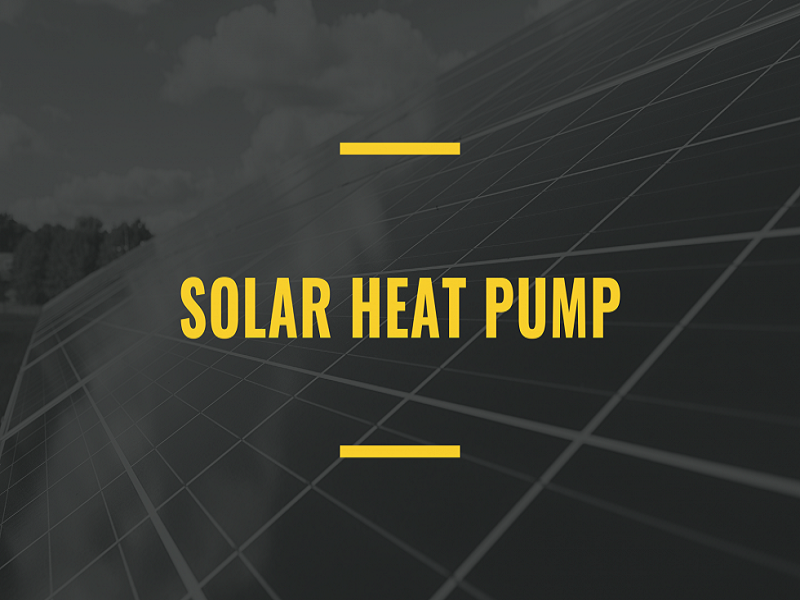Solar heat pumps are the new way towards energy efficiency! Solar-supported heat pumps are best for single-family homes. Besides, this is also one of the best investments you can have. Let’s see more specifications of solar heat pump units below.
How does it work?
During the day, the solar heater is powered mostly by solar energy, with just tiny quantities of power absorbed from the sunlight. These heat pumps can be used for many hours and they further eliminate the need for batteries.
It is more suitable for single families because the need for centralized or individualized thermal integration in multi-family residential buildings may reduce the convenience. This is not an off-grid system, but it may run at half speed without an AC connection during the day, or at full speed if connected to extra solar panels.
Heat pumps require electricity to operate, and since electricity is a renewable resource, the question of whether a solar panel can power a heat pump arises. Solar panels can generate enough electricity to run your entire home’s heat pump. Solar panels and heat pumps complement each other effectively, lowering your overall electricity bills.
What Is the Maximum Power a Solar Panel Can Produce?
Solar panels’ efficiency has grown considerably throughout the previous few decades. Solar panels were able to regenerate roughly 6% of solar energy to electricity in the 1950s. But by 2020, the efficiency of solar panels increased to 18.7 percent. Furthermore, some high-end solar panels can increase this number to 25%.
A solar panel can technically power almost any gadget in your home. Your washing machine, refrigerator, oven, television, and other appliances, all can be powered by a solar panel. But, perhaps most importantly, it can run your heat pump more effectively. According to Home Inspection Insider, installing a few solar panels on your roof and calculating the energy is an easy and effective task.
The amount of power generated by a solar panel is determined by three key elements.
The solar panel’s dimensions and sizing
Solar cell efficiency: Which is a measure of how effective the cells are in converting sunlight into electricity.
The quantity of light available in your area (peak sun hours).
The average amount of sunlight is likely the most crucial aspect. Even though you may receive 8 to 9 hours of total sunlight during the daytime, this does not necessarily equate to 8 hours of peak daylight, which can be more restricted to 4 or 5.
Each solar system is tailored to the demands of the individual household. An in-depth examination should always be performed by skilled professionals, with the goal of determining how much electricity you will require. Moreover, the electrical requirements of a heat pump depend on the type of system.
Post time: Aug-24-2022


